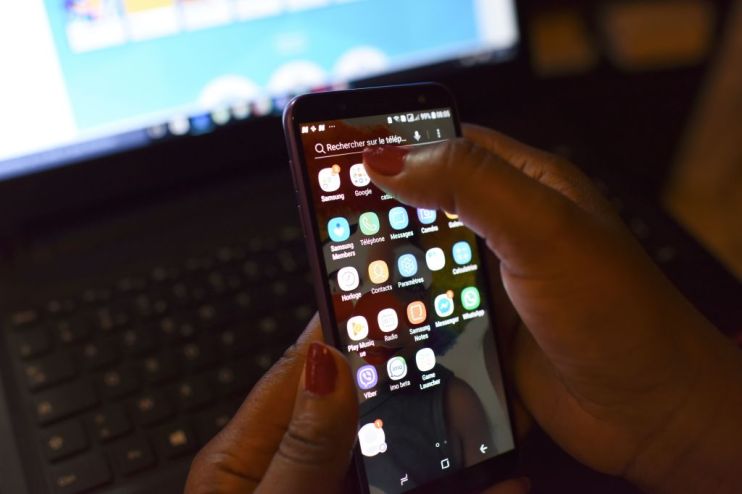Gone smishing: Would you recognise an impostor texting you?

The first warning sign was an anonymous new number being added to my Whatsapp group with my parents. I was later removed from the chat – but I was busy so I didn’t think too much about it.
I started to really smell a rat when my parents’ references to bathwater reached double figures. In the end I had to confront them.
It transpired my mum had received an innocent enough text:“Hi mum it’s me”. “I” then told her to delete my old number and save this one. She asked who the sender was. The reply came: “Your oldest child”.
It took a while to convince my parents that I hadn’t dropped my phone in the bath, my SIM card wasn’t damaged, I hadn’t lost all my photos and my number hadn’t changed.
Eventually my verbal testimony slowly began to dwarf the days-long narrative they had constructed in their heads. The two of them, it turns out, had been exchanging a change of messages with “me”, complete with heart emojis and follow-up calls and texts if I didn’t respond in a timely manner.
The phisher – or smisher, as it’s known if you’re conducting fraud via SMS – had even managed to elicit a very sensitive reaction from my mum, who is rarely emotional over text.
Some of these messages (“I will go tomorrow to the phone shop I hope they can help me out”) barely sounded like a native English speaker.
Over four days, my parents extrapolated from a tiny amount of information. They hypothesised reasons for my strangely cold behaviour and constructed a complex alternative reality in which I was deeply upset about the lost phone and photos, was experiencing something of a manic depressive episode and was unable to communicate in a normal way. The truth was they were texting someone probably working out of a foreign country, in a fraud operation.
Luckily I happened to go round before my mum could pay “my” bills on my behalf – but it wasn’t for lack of trying. Brits lost a ‘staggering’ £580m to fraud in the first six months of 2023, according to UK Finance. Fraud accounts for 41 per cent of all crime in England and Wales. And since ChatGPT burst onto our screens, there have only been more fevered fears about how it will drive yet more fraud.
In fact, last week, before Rishi Sunak’s AI Safety Summit at Bletchley Park kicked off in earnest, Tom Tugendhat, the securities minister, delivered a whole speech dedicated to the threat AI-driven fraud posed to Brits.
But here, there was very little sophistication behind the project, my parents projected my identity onto such bland messages. You’d assume “well, sure, they’re you’re parents” – surely a savvy digital native who knows how to interpret text messages wouldn’t fall for this sort of scam?
Except they would.
Young people are in fact more likely than oldies to be the victim of fraudulent messages. We receive them more frequently, too.
The ONS report that adults aged 25-44 years were more likely to receive a phishing message (around 59 per cent) than other age groups.
Young people are in fact more likely than oldies to be the victim of fraudulent messages
Those aged 35 to 44 years also had the highest proportion of respondents who replied to the message or clicked a link (4.8 per cent – three per cent was the all-age average).
Cohabiting, richer, employed homeowners are more likely to be targeted for scams (says the ONS). This information goes some way to explaining why the UK has been named the fraud capital of the world after £1.2bn of our money was stolen in 2022.
The psychological desire to help one’s loved ones is clearly one explanation.
But it is also “Britain’s culture of openness, where more and more people are sharing personal details online, may also contribute to our exposure as a society to all forms of fraud” as the ICAEW points out?
The organisation also proposes individuals should take more responsibility, as well as the government launch widespread anti-fraud awareness campaigns like they did with road safety and drugs.
New rules are in fact coming into force next year: the Payment System Regulator, a subsidiary of the Financial Conduct Authority, has confirmed these will force banks and payment companies to reimburse victims of authorised push payment (APP) fraud.
But until a greater public safety campaign is launched – the culture that leaves Brits so vulnerable to scams, and more estranged from each other than in other countries, will only ensure the epidemic persists.
And it’s getting worse. Fraud has risen significantly since 2019, seeing a 25 per cent rise on pre-pandemic levels in the year to March 2022 according to the ONS.
With AI on the rise, fears are only escalating.
In a report published in May, UK Finance flagged concern over how AI may create increasingly sophisticated varieties of fraud. Scammers are reportedly already using generative AI – like Chatgpt – and voice cloning to forge convincing scams.
But if it took so little to trick my parents – worrying about AI could be a red herring.